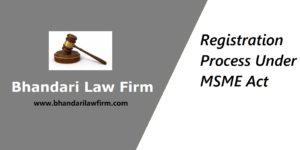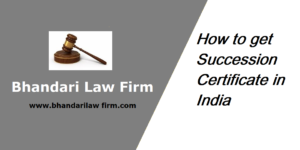An Analysis of the Principle of No Work, No Pay Service Rule in India.
The principle of No Work No Pay depicts that if the employee has not worked, he will not be paid work pay service rule India
In India, this principle prevails except for in some cases wherein the facts of the case do not approve the application of the principle. work pay service rule India
In J.N. Shrivastava v. Union of India, after examining the legal position, the Supreme Court has held that principle of “no work no pay” is not applicable when the employee is ready and willing to work, but the employer prevents him from doing his duties (i.e. work). The said principle cannot be applied to a case in which an employee is kept away from duty or rendered ineligible by act or omission of the employer. work pay service rule India
In another case, Shobha Ram Raturi Vs. Haryana Vidyut Prasaran Nigam Limited and Others, the apex court had held that the principle of ‘No work, No pay’ would not apply and the appellant was entitled to back wages as he was restrained from working by the employer. The Madras High Court Bench held in a case that the principle of `no work no pay’ will not apply to employees who were willing to work but not allowed to work by the employers despite the judicial orders. work pay service rule India
In the case titled Pawan Kumar v. State of Haryana, it was held that the petitioner was ready to join after availing of leave on medical grounds but was not allowed by the employer to do so. The principle of No Pay No Work was not applied in this case.
In the case titled Housing Board, Haryana v. Sh. S. B. Kumar and Anr, it was held that the petitioner was not allowed to join the work and thus the authorities were directed to grant him all the benefits considering as if he had worked.
Also Read:- Our Service Service Matter Practice
In Rashtriya Shramik Aghadi vs State of Maharashtra, the Aurangabad Bench of the Bombay High Court recently observed that during this present time of the COVID-19 pandemic, the principle of “no work- no wages” cannot be made applicable by the employers.
In this time of the pandemic, due to the lockdown by the government, many employees have been facing the issue regarding their wages or salary since the employer says they have not been doing any work. Though it must be considered that the workers or employees are willing to work but due to the situation they are no able to work. Thus, the ruling given by Supreme Court comes to focus which stated that the employees is willing to work and could not work, should be given benefits or wages or the salary.
The Ministry of Labour and Employment issued an advisory on 20th March 2020 appealing to all employer’s associations not to terminate their employees or cut wages of its workers in view of the lockdown. The advisory also stated that all employers of public/private establishments are advised to extend their cooperation by not terminating their employees, particularly casual or contractual workers or reduce their wages. It further stated that if any place of employment is to be made non-operational due to COVID-19, the employees of such unit will be deemed to be on duty. The order of 29th March 2020 was issued to make sure that the state/ Union Territory Government and authorities take measures to ensure that all employers, be it in Industries or in shops and commercial establishments, shall make payment of wages to their employees at their workplace without any deductions during the period of the lockdown, what begs the question is how such State/ Union Territory Government/ authorities would enforce the order which pertains to issues falling within the domain of private employment and governed by employer-employee relationship and whether any steps taken by the State/ Union Territory Government/ authorities solely on the basis of the order of 29th March 2020 issued in purported exercise of power by the Central Government under the Disaster Management Act vide would be legal.
Both employer and employee have a fundamental right to carry on any occupation, trade or business, as enshrined under Article 19(l)(g) of the Constitution of India, which fundamental right stands effectively suspended during the lockdown. However, it appears that the order of 29th March 2020 only seeks to take measures to mitigate the economic hardship of the employees/workers to the detriment of the same rights of an employer. The measures adopted by the government have ignored the rights/entitlement of the employer to measures to mitigate their economic hardship and have failed to consider that COVID-19 is adversely impacting both employer and employee and it was incumbent on the government to take a balanced view so that both these classes could overcome this unprecedented situation.
Another view is that from a humanitarian perspective, directing employers to ensure payment of wages to employees may at first appear logical as in the event the employees are left without any source of income. But to cast the financial obligation on private employers to ensure timely payment of wages without any monetary aid from the government at a time when operations are down and no revenue is generated, cannot be said to be a fair move and appears to ring hollow in light of the fact that many state governments have itself taken a decision to cut or defer salaries of government employees in light of the Covid-19 pandemic.
No Work No Pay principle recently has been discussed in a case titled as Ishwar Singh V. State Of Haryana And Others (CWP 11419 OF 2016) by the Hon’ble Punjab And Haryana High Court, Chandigarh.
The present petition was for the issuance of direction to the respondent to release the salary of the petitioner for the period from 07.04.2001 t0 07.04.2014 during which the petitioner was kept away from joining his duties. The petitioner was appointed as a clerk in the Prisons Department in 1987 on an ad hoc basis and the services were regularized in 1991.
In the written statement, it was mentioned that the petitioner remained willfully absent from his duty on five different occasions and hence the petitioner was placed under suspension in 2002 for gross negligence towards his duties and charge-sheeted under Rule 7 of HCS (Punishment and Appeals) Rules, 1987. The petitioner was then dismissed from service in 2003. The memorial was filed by the petitioner after 2 years 3 months which was accepted by the Hon’ble Governor of Haryana and orders were conveyed by the Government to take back the petitioner in service in 2014. Thereafter, he was promoted from the post of clerk to the post of the accountant and his salary was refixed. Hon’ble Governor of Haryana was satisfied that it was a case of malafide intention to harass and harm the petitioner. The petitioner had been deliberately kept away from performing his duty. The court observed that everything was done with a malafide intention. It seemed to be a case of sheer intimidation against a subordinate employee by a senior officer. Moreover, the appellate authority took 7 years to decide the case. Thus, the petitioner was ready and willing to work but was deprived by the respondent.
Thus, the Principle of No work No Pay cannot be invoked in this case. The writ petition was allowed and respondents were directed to release the salary of the petitioner for the period from 07.04.2001 to 07.04.2014. The petitioner was held to be entitled to all consequential benefits.
Note: For any further information or any query you may contact us on 9855677966 or via email info@bhandarilawfirm.com



